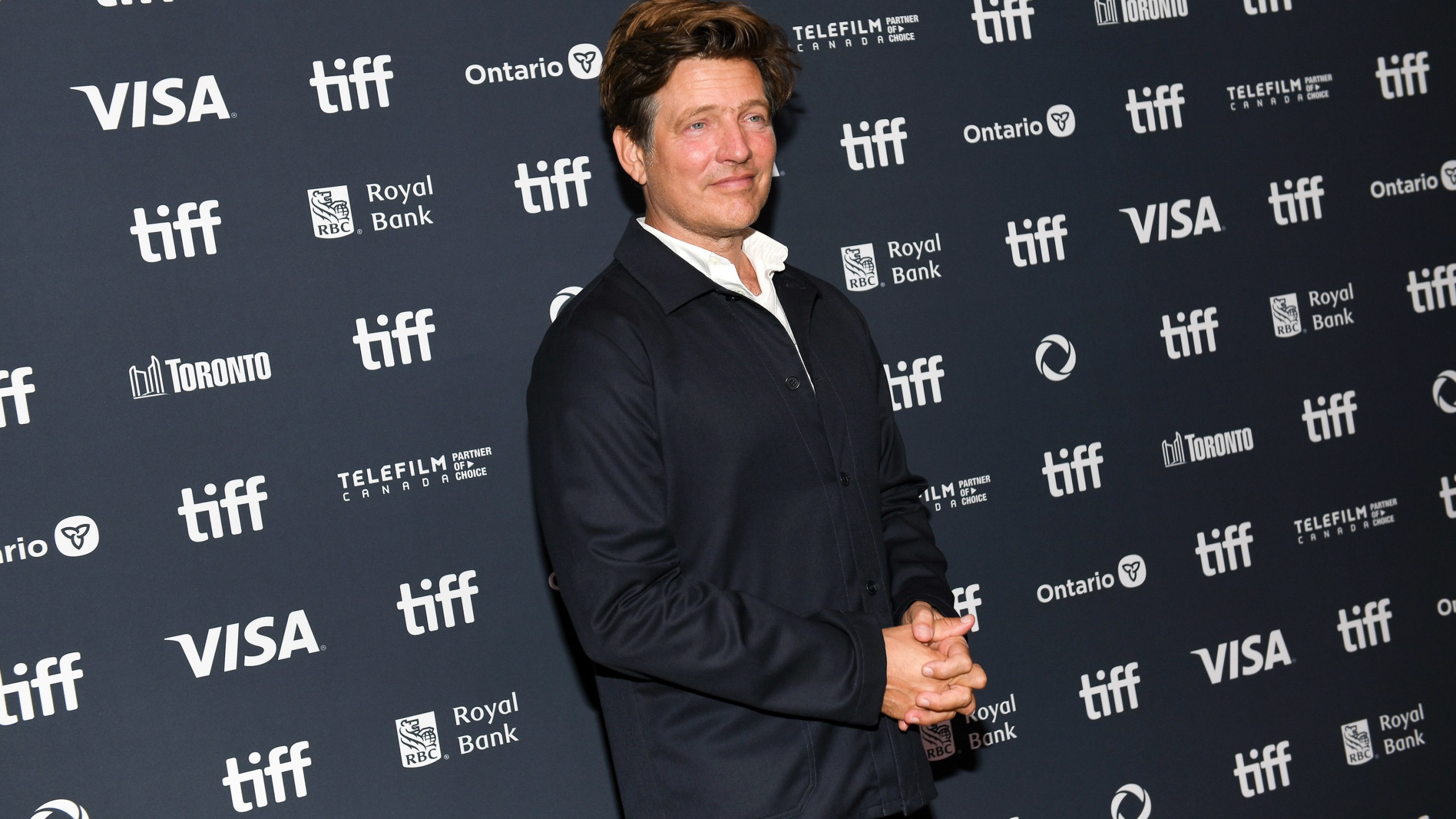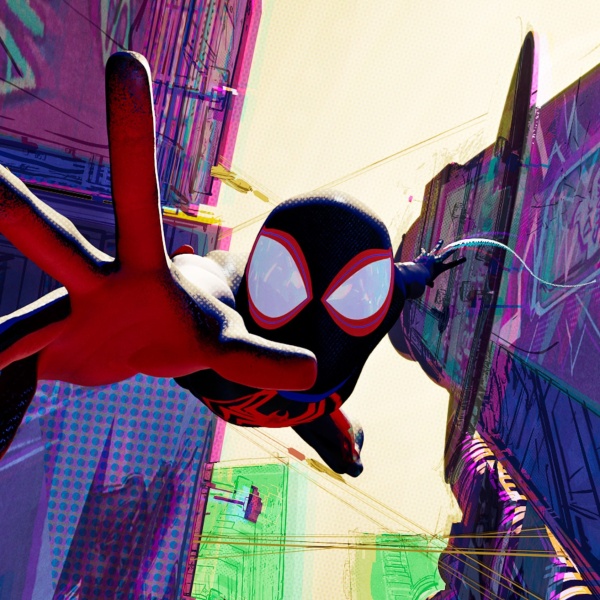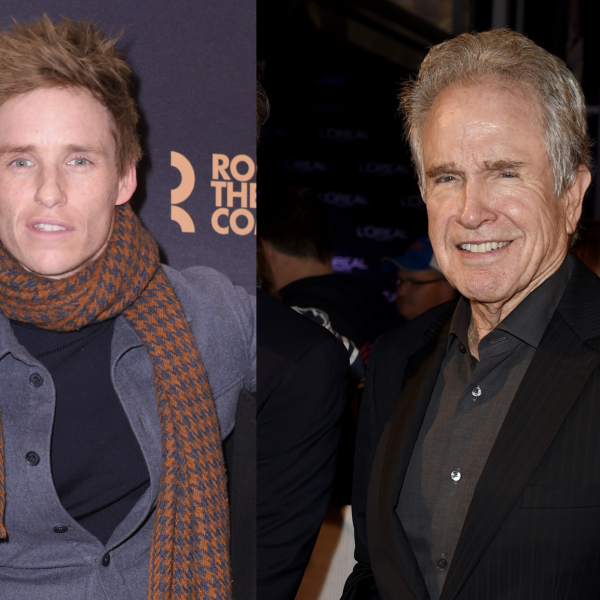Writing and directing a series is a rite of passage for any celebrated European filmmaker — so why shouldn’t Oscar winner Thomas Vinterberg follow in the footsteps of Ingmar Bergman and Rainer Werner Fassbinder? The Danish director, who won the Best International Feature Film Oscar for “Another Round” in 2021, was in Toronto to promote his new series, “Families Like Ours,” which first premiered in Venice alongside Alfonso Cuarón’s “Disclaimer” and Joe Wright’s “M. Son of the Century.” He spoke to IndieWire about his seven-episode television show, which finds Denmark in a state of environmental collapse, flooded by rising water levels as its citizens panic toward a way out. Denmark, like everywhere else, has been hit by storm surges in recent years, so this series is all too prescient in its imagining of a widespread catastrophe that would push its people out.
Vinterberg first made an arthouse splash with his 1998 “The Celebration” (“Festen” is the Danish title), a sparse, squabbling-family, darkly hilarious chamber drama directed under the Dogme 95 conditions he established with Lars von Trier: minimal, natural lighting, only practical effects, no extra-diegetic music, and stories centered only on humans and their relationships. “Families Like Ours,” despite some CGI technique as climate change threatens an ensemble of Danes trying to leave their country, is no different, and includes a few of the same actors Vinterberg got his start with. But his first-ever TV series is looking for a North American distributor, as any feature film at a film festival must do.
In this tense series that has an ultimately hopeful attitude about humankind, financially strapped architect Jacob (Nikolaj Lie Kaas) learns from his wife’s brother, Nikolaj (Esben Smed), and Nikolaj’s husband Henrik (Magnus Millang), that Denmark is on the verge of shutting down. Jacob scrambles to gather his daughter Laura (Amaryllis August, the heart of the series) and even his depressive ex-wife Fanny (a journalist, played by Vinterberg regular Paprika Steen) to find safe haven. But everyone’s allegiances to their home country and the people in it create conflict en route to an exit.
Vinterberg co-wrote the series with Bo Hr. Hansen before the pandemic, which necessitated a lot of changes for a production post-COVID that the filmmakers did not want to mirror too closely what we’d all just been through. In fact, Vinterberg started on the idea for “Families Like Ours” as early as 2018 — and as he explained, he took the words of Ingmar Bergman to heart in deciding on this family saga as his next project well before “Another Round” brought Vinterberg a bigger international spotlight. And as of this year, it was announced that “Another Round” — starring Mads Mikkelsen as a schoolteacher determined to stay low-key drunk throughout his workday — would be remade in the U.S. with director Chris Rock. How will that premise work here? We discuss the remake, Vinterberg’s relationship with Dogme 95 co-founder Lars von Trier, and more below.
This interview has been condensed and edited for clarity.
IndieWire: There’s some hostility among audiences toward episodic series showing at a film festival. What’s been your experience of that?
Thomas Vinterberg: Venice was very gracious because they showed all the episodes in the cinema, a great cinema, so the audience had the experience of being collected together, the communal experience was still intact. It was pretty much like watching a long movie, and it was interesting — all the interviews, with no exception, in Venice, all journalists called it a film. I’ve done nothing but films my entire life, so this is how we approached this: as one long movie. For me, it wasn’t that different, to be honest.
Alfonso Cuarón described “Disclaimer” as a long movie, and he treated it as one as well. In the festival bubble the last few weeks, you had Cuarón at Venice, Joe Wright at Venice, and Tomas Alfredson with the Liv Ullmann adaptation, “Faithless,” at Toronto. Did you run into any of those guys and talk about your shared experience of being auteurs bringing a series to the festival?
I did not, actually. I have had some conversations with Alfonso over the years. He helped me with “Another Round,” rallying for the Oscars. I’ve never met Tomas Alfredson. I didn’t know he was here. What I can see from Alfonso’s series is seven is the new black. We both made our series too long, I suppose. I haven’t asked him, but I’m sure he started with six episodes as well and ended up with seven. Because we make movies, we’re not used to these time restraints.

Is it a rite of passage for European directors to make a series? You’ve got Rainer Werner Fassbinder, who’s done a couple, Ingmar Bergman with at least two depending on how you look at it, and then your countryman Lars von Trier also made a series, “The Kingdom,” well before this trend of filmmakers delivering at least one series in their time.
I realized when I was in Venice that Bergman and Fassbinder premiered their series in Venice, actually. I feel I’m sort of on the backside of the mountain; the series has been fashionable for years, and I am suitably late.
You are.
Having said that, I’ve always wanted to make [a series], all the way since I did “Festen” back in the 1800s, my Dogme movie that I did in the ‘90s. On wrap of that movie, I was like, let’s carry on. We’ve created these characters. We’ve created this family. We’ve created all this backstory. I love these actors and I love being with them, and I so wanted to make a series. Now, finally, it happened. For me, it’s not that important if it’s a series or a movie, really. There’s a story you want to tell, and you tell it in the format that fits the story. It’s not like, “I’m entering the world of a series now.” This needed the length, the gravitas, of a real saga of Danes moving out of their country.
Climate devastation is something you explored in your critically derided 2003 romance with Joaquin Phoenix and Claire Danes, “It’s All About Love,” which is actually a movie I really like. Was a redemption or revisitation of that movie on your mind at all here?
Well, first of all, welcome to a very exclusive club. Over the years, this club has been growing. “It’s All About Love” is my trouble child. It’s maybe the one I hold dearest, but it really behaved badly socially. I don’t like sending tributes to myself, but if any, I would love to send a little greeting to that one. We did talk about climate change all the way back then in the year 2000, in our own absurd, poetic kind of way. It has been a worry on my mind for years, also before it became the front page of a lot of newspapers. The thing is we used to be afraid of nature, we used to be afraid of drowning in a storm or hit by lightning. The fact that it has changed into us being afraid of what we’ve done to nature has always worried me deeply. So [“Families Like Ours”] does come from the same place as “It’s All About Love.”

How would you characterize the culture and relationship to apocalyptic ways of thinking in Denmark? If this series were made in the U.S., anything that’s end times, Americans dismiss because it feels like we’re already living it. We think of Denmark as a place of peace and prosperity that’s even envious. Are Danes predisposed to pessimistic thinking about where we’re headed?
Let me just correct one thing: the pessimism. Yeah, maybe. But this is a thought experiment that deals with how human beings can cope, how we can reinvent ourselves and how we have to reinvent ourselves, which to some extent, I hope is hopeful. Well, Danish hopeful. I started writing this story six, seven years ago. This was prior to COVID, to all the storms and the water, and back then, everyone was like, “Dude, this is a crazy thought. This is a strange, futuristic, unbelievable thought.” Now, what they call it is actual; this is how our life is right now. So we’ve been overtaken by real life, which is scary as well.
Suddenly, there was COVID. We had to take out scenes of our script because it was one-to-one the same as what happened in life. The story [originally] took place in Kiev. We had to change that. Now, there’s more water in Denmark than we could afford in CGI for the series. The perception of this story changes while making it.
You shot this across a year in five different countries with this sprawling cast and crew. It’s not like a movie where you have six weeks to shoot, and that’s it. Is there anxiety about a production sustained in that way, where you have an impulse to abandon the project midway through but can’t?
That’d be amazing, wouldn’t it? Like, “I’ve had enough of this! Take your millions, and shove it.” It was a very strange experience. Obviously, being 55 now, all these shooting dates were a tough physical task. It’s a bit of a war zone shooting anything, whatever you shoot. I really enjoyed
One thing I like about this series is how Nikolaj and Henrik are a gay couple but the script doesn’t politicize it. In the U.S., this would be heralded as radical representation. It’s so subtle that in “Families Like Ours,” this almost could’ve been a heterosexual couple on this script level, but one that’s changed subtly.
I thought it would be strange to make it sensational. They’re just a couple, like any other couple, and it was kind of intentional. These men love each other, and they’re a couple, and they’re married. That’s it, really. I was asked, “Why don’t you make sex scenes?” I was like, “Dude, I don’t make sex scenes with the others, so why is that question coming?”

This was your follow-up to “Another Round.” You hear about international filmmakers going into the Oscar race, being nominated for Best Director and winning International Feature, and then there’s a paralysis that comes after that, the burden of expectation. Did the Oscar win change anything for you?
The whole Academy Award experience — both times I was there, [as] I was [also] there with “The Hunt” — has been amazing. To be elevated by the colleagues you admire, which I guess is the system, suddenly you are interviewed by your fellow directors in front of audiences. There’s a great element of solidarity and camaraderie in that system. I had already decided my next project, my series, at the time that I premiered “Another Round.” So it didn’t change [anything] that much. I suppose it has been a bit easier to finance this series, which wasn’t that cheap. And it was very easy to cast it. Everyone wanted to be in it. Other than that, I didn’t feel an enormous change. I am now involved in a lot of international projects in development, which I guess is a result of “Another Round.” And probably some of my other movies. I had this thing that I learned from Bergman, which is always to decide your next project prior to the opening of the one you’re doing, so that you’re not too influenced by the noise. Two things can happen: It’s a disaster, you’re paralyzed, you become strategic. What kind of director am I, what should I do? Worse than that, you can have a success, and you will be unable to move. If you’ve decided already, it’s easier.
But that is strategic too, to have decided already!
It’s a strategy of trying to flick off strategies.
I wrote down to ask how you feel about the “Another Round” remake, but you seem like you have a good attitude about it. If it even happens.
Yeah, basically. I’m curious to see what they do. The films I have done, several have ended up as plays, like “The Hunt” in New York, which I heard was great but didn’t see. “The Celebration” has played [onstage] for years and years. I’m proud of those interpretations of my scripts, and I’m looking forward to seeing what they come up with, and seeing what Chris Rock comes up with [on the “Another Round” remake].

Are you in touch with Lars von Trier? It just got announced that he’s working on a new film with Stellan Skarsgard. His health has been in decline.
We’re friends, but friends in the kind of way that brothers can be sometimes, where we have some fights occasionally. We don’t have any fight right now.
What are you having fights about?
Oh, whatever. I haven’t talked to Lars in a while, but we work in the same company [Zentropa], and we talk occasionally, and I’m very excited to hear he’s making another movie.
“Families Like Ours” doesn’t check all the boxes of a Dogme 95 production, but like all your projects since that movement dissolved, it’s obvious you haven’t totally shaken it off. Are you conscious of that, or rebelling against what you started?
I will always be aware of how many lamps and how much music I add to anything I am doing since I went to that monastery of Dogme. It was a self-cleansing process, and I learned a lot from that. It’s always a mirror to whatever I’m doing, the days of the Dogme. But I couldn’t repeat that same recipe. When we did it back then, it was dangerous. It was almost suicidal. It was revolting. Then, it became a success. You could even buy Dogme furniture in my home country. Then there’s no risk anymore. It’s like a ticket to a film festival, and thus we had to abandon it, and try new territory. But I miss it often. And Lars does as well. We are quite sentimental when talking about it. Well, surprisingly sentimental. “Those were the days that we had fun.”
“Families Like Ours,” which played Venice and TIFF, is currently seeking North American distribution. The seven-part series will next play the London Film Festival.


